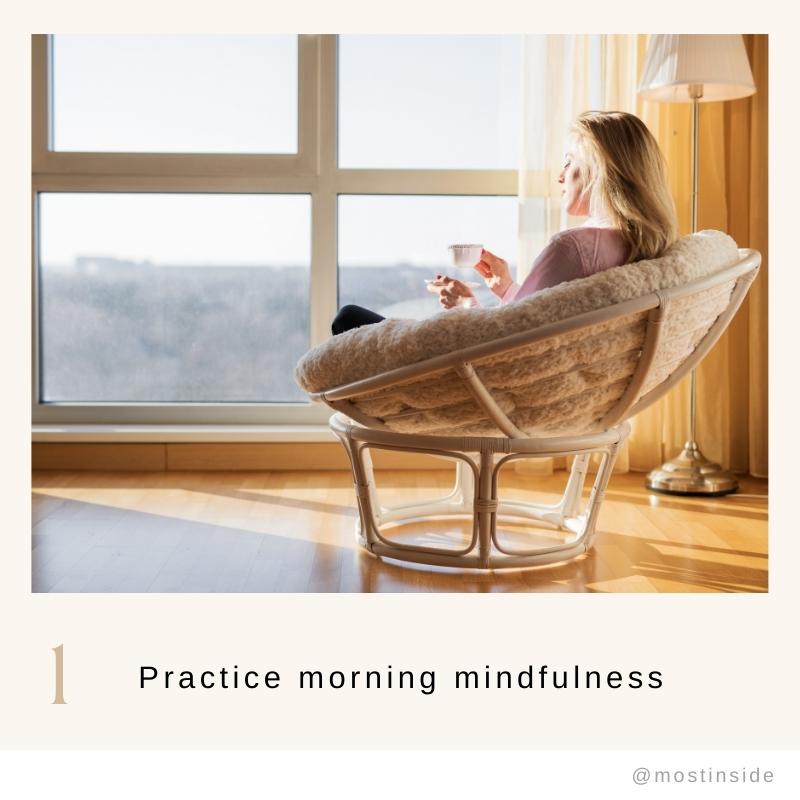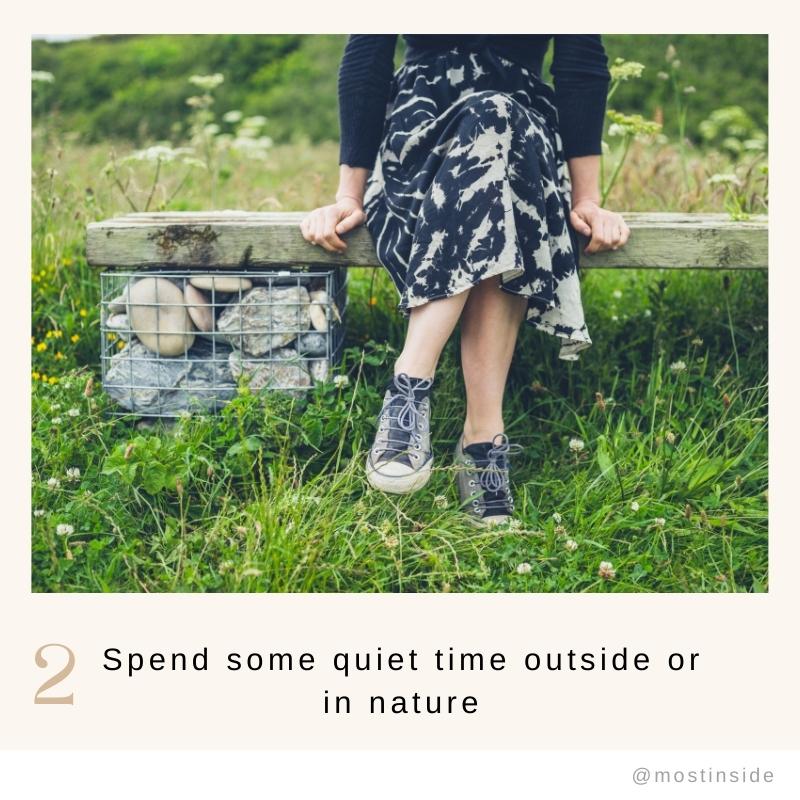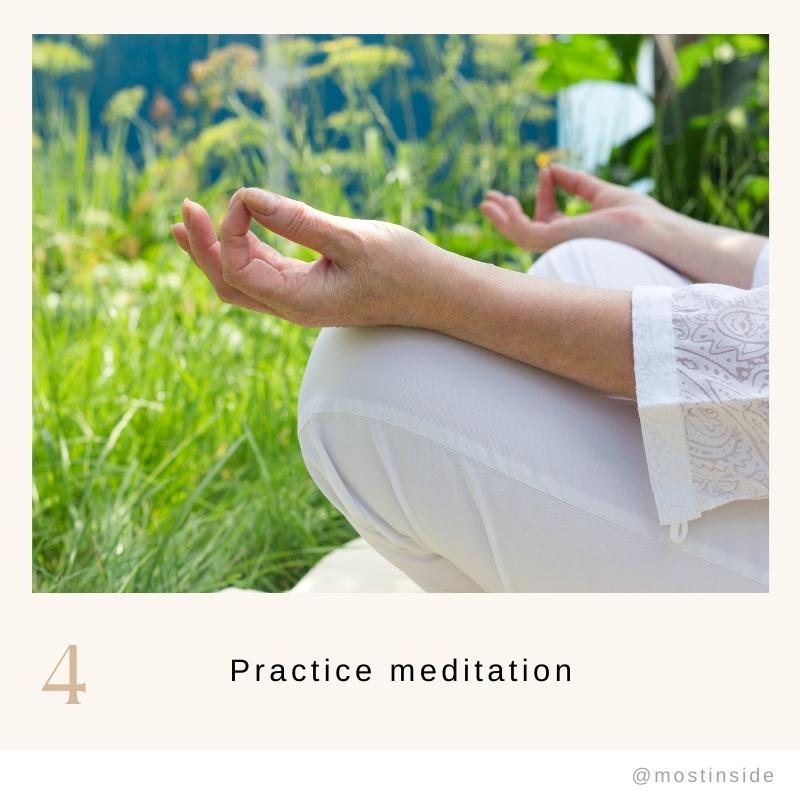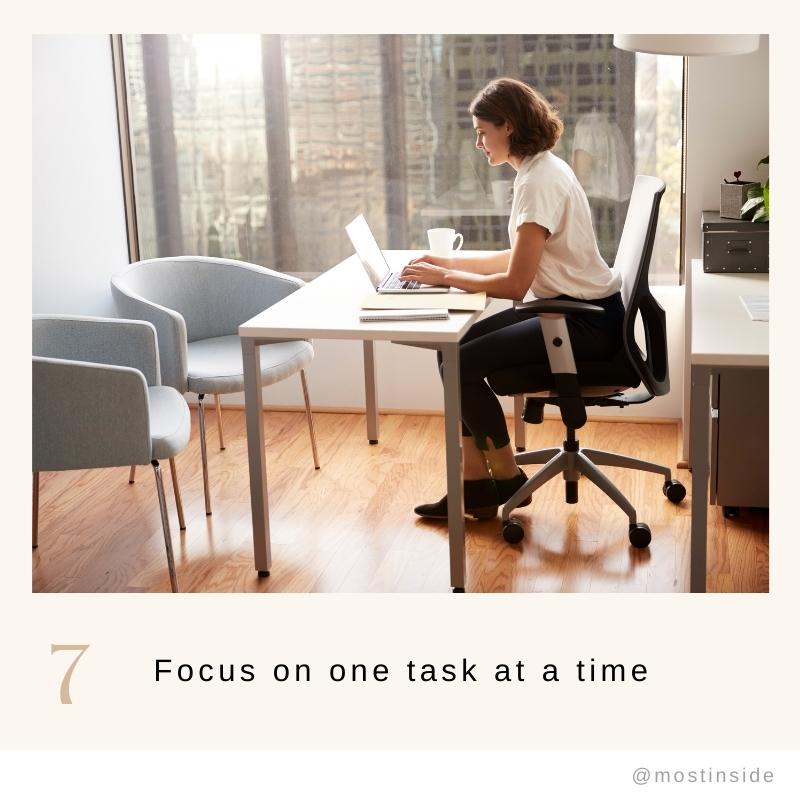9 Mindfulness Habits to Practice Everyday for Improved Mental Wellbeing
This post was last updated on November 19th, 2024
 Mental wellbeing has been one of the most talked health concerns amidst this uncertain pandemic situation. When people had to stay indoors most of the time to limit social gathering and maintain social distancing, being uncertain and scared as hell waiting for their turns to get infected someday, scanning through depressive pandemic news and updates, mental health of mankind has taken a severe hit which has dilapidated the mental stability and wellbeing of millions of people. Before the pandemic world, mental health was given prime priority to be taken care of and counselled for overall wellbeing, and now this pandemic has triggered a huge wave for this crucial concern that needs early awareness and consciousness. For strong and enhanced mental health, mindfulness can be a magical tool to get the ever wandering and disconnected mind in control and in the best composure. This modern and super-technology driven world has created a bitter mess in human minds which has adversely affected both the conscious and subconscious state of mind. To be honest, there are numerous articles and blogs you can find on web that would mundanely replay the old-school methods to improve mental health, but the question is, have they really helped people till yet? And if yes, how effectively? If you have the slightest idea what is mindfulness, then you can surely succeed in achieving absolute healthy state of mind at least in few months. There are certain mindfulness habits that you can practice everyday as a part of your daily routine to achieve improved mental wellbeing. Here are they:
Mental wellbeing has been one of the most talked health concerns amidst this uncertain pandemic situation. When people had to stay indoors most of the time to limit social gathering and maintain social distancing, being uncertain and scared as hell waiting for their turns to get infected someday, scanning through depressive pandemic news and updates, mental health of mankind has taken a severe hit which has dilapidated the mental stability and wellbeing of millions of people. Before the pandemic world, mental health was given prime priority to be taken care of and counselled for overall wellbeing, and now this pandemic has triggered a huge wave for this crucial concern that needs early awareness and consciousness. For strong and enhanced mental health, mindfulness can be a magical tool to get the ever wandering and disconnected mind in control and in the best composure. This modern and super-technology driven world has created a bitter mess in human minds which has adversely affected both the conscious and subconscious state of mind. To be honest, there are numerous articles and blogs you can find on web that would mundanely replay the old-school methods to improve mental health, but the question is, have they really helped people till yet? And if yes, how effectively? If you have the slightest idea what is mindfulness, then you can surely succeed in achieving absolute healthy state of mind at least in few months. There are certain mindfulness habits that you can practice everyday as a part of your daily routine to achieve improved mental wellbeing. Here are they:
1. Practice morning mindfulness

No matter how busy and hectic your daily schedule is, try finding out some time for yourself in the morning. You can wake up early in the morning and get yourself some time to sit and practice morning mindfulness. You don’t have to find a suitable place for that, you can just sit at the comfort of your living space’s sofa and focus on your breathing along with a specific subject that you want to resolve. Morning mindfulness time can be the perfect time for thinking over unresolved matters and issues of one’s life to reduce stress and improve productivity.
2. Spend some quiet time outside or in nature

The quiet time isn’t necessarily quiet, as it means you have to stay chaos free void of devices and thoughts. You have to get outside, to get out of the comfort of your home and find the comfort there, be it amidst the nature, or in the sea beach, or in a park or even by the busy city roadside. All you need is a place where you can feel the vibration of nature and surroundings to focus and try finding the synchronization with your breaths and emotions.
3. Eat mindfully

Practicing mindfulness is actually not that tough if you pay a little close attention with deep understanding. It can be done almost everywhere. You can do it while eating as well. You need to focus on your food that you eat, the colour, flavour and texture. Get rid of distractions while eating, such as phones, tabs, television, laptops or even music. Just simply feel the food and its taste and doing so you pay attention on the rhythm of chewing the food which makes digestion easy and effective as well. This is one of the ways to master your emotions and feelings to reduce stress and anxiety.
4. Practice meditation

Meditation practice is one of the most traditional mindfulness habits of improving mental wellbeing. It is a conventional method or habit that a person can easily adopt in his everyday life to reduce stress, anxiety, unstable emotions and get a good control over his thoughts and emotions. Meditation helps you to achieve composure and calmness to relax your mind as well as body on a spiritual level.
5. Feel your feelings and emotions

Many of you are going to get a little confused here as to bring balance and calmness for mental stability, usually mindfulness involves emptying the mind making it void of any thoughts and feelings to focus on a matter or breathing. But who said mindfulness needs to get rid of your existing feelings and emotions? Sit in a quiet place at home or outside wherever you’re comfortable and start to feel those inner emotions and strong feelings deep down to understand the density of it and find out the reasons behind it, how it affects you, how can you fight it or improve that feeling and make things right which absolutely takes a huge focus and concentration to deal with your current situations and improve mental wellbeing.
6. Be creative and create something

Mindfulness practice in everyday life can also be done by being creative or say by focusing on your creative side. Your skills, your talent, can help you practice mindfulness. As, if you love painting, start painting on the canvas and get involved in it so deep that you not only give wings to your creativity but also create a masterpiece. Doing so you bring yourself, your mind and soul the sense of content, the fulfilment, and relaxation, which improves your mental health.
7. Focus on one task at a time

If something has the power to ruin and destroy the mental equilibrium or a calm mind then, it has to be multitasking or procrastination. And in both cases, we overload our mind with extra work and multiple tasks that disturbs the balance of mental health by affecting our thoughts and feelings. One becomes easily irritable, poorly focused, less productive, confused, disoriented when practices multitasking more often or regularly. Thus, focusing on one task at a time is the best mindfulness habit to practice every day for improved mental wellbeing.
8. Indulge in any of your favourite physical activities

Physical activities may involve basketball, volleyball, badminton, cardio exercises, running, jogging, yoga, all sorts of strength exercises, or even dancing or swimming. Choose your favourite one and practice it every single day and enjoy it completely. This method not only helps you to focus on the physical workout and your breathing, but also helps your body and mind to relax and reduce stress effectively.
9. Stop controlling things that you can’t

Another effective yet unusual mindfulness habit to practice every day for improved mental wellbeing is letting things go that are hard or impossible to control. By doing so, you focus on positivity and the positive feeling inside you. The sense of feeling light, relaxed, stress-free helps you to focus on the positive feeling and energy around you that helps you to stay mentally healthy and strong.
You may like this
Recommended For You
Climb The Ladder To Success In The Bill Gates Way
Priyadarshini Muduli
A full time passionate writer with imperishable determination to bring healthy, smart and pragmatic changes individually and socially. Concentrate especially on lifestyle, life and personal improvement, relationships, mental health and behavior, viral issues and literature based subjects.




